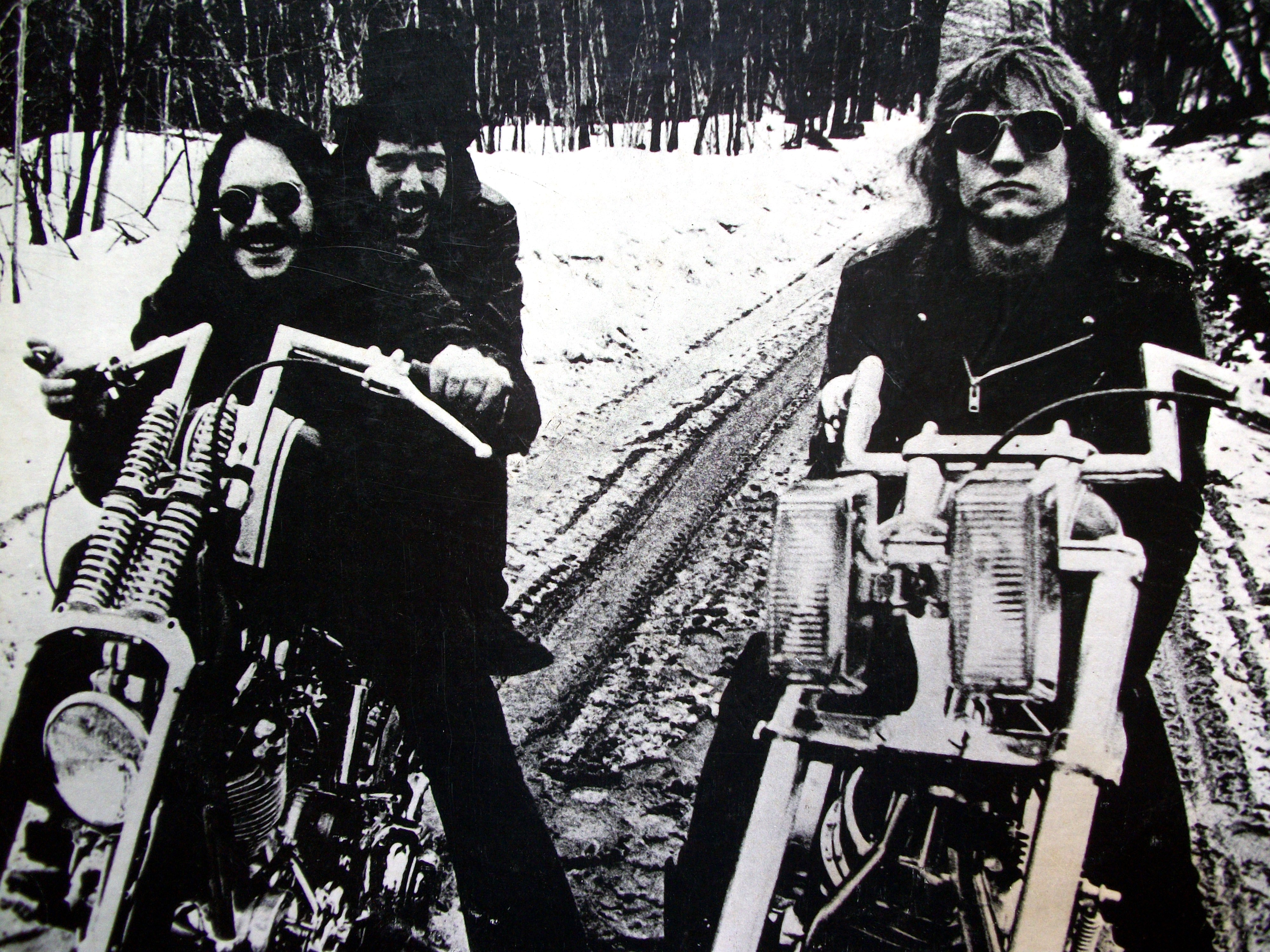 Way back in 1970 when I was writing for Zygote magazine, I pitched an article on the James Gang based on a record I couldn’t get off my turntable, Yer’ Album. The trio’s debut had an experimental vibe shared with so many releases at the time. The psychedelic strings-and-guitar “Introduction” led into guitarist/vocalist/keyboardist Joe Walsh’s Beatlesque “Take a Look Around,” with its Hammond B3 organ washes overdubbed against ethereal Echoplex guitar figures and Walsh’s Alice-in-Wonderland vocals. Just as the listener settled into this groove the band followed with the punch-in-the-face of “Funk #48,” snappy metal syncopation with Walsh’s flashy stutter-step chording in a crisp duck and weave with Jim Fox’s precision drumming.
Way back in 1970 when I was writing for Zygote magazine, I pitched an article on the James Gang based on a record I couldn’t get off my turntable, Yer’ Album. The trio’s debut had an experimental vibe shared with so many releases at the time. The psychedelic strings-and-guitar “Introduction” led into guitarist/vocalist/keyboardist Joe Walsh’s Beatlesque “Take a Look Around,” with its Hammond B3 organ washes overdubbed against ethereal Echoplex guitar figures and Walsh’s Alice-in-Wonderland vocals. Just as the listener settled into this groove the band followed with the punch-in-the-face of “Funk #48,” snappy metal syncopation with Walsh’s flashy stutter-step chording in a crisp duck and weave with Jim Fox’s precision drumming.
What really sold me on Walsh, though, was his audacious decision to cover the Buffalo Springfield’s “Bluebird” and the Yardbirds’ “Lost Woman” back to back. I’m always suspicious of covers but Walsh attacked these with purpose, demonstrating that he could assimilate styles without being merely imitative. Taken together these two performances explain the light/heavy dichotomy of Walsh’s unique conception, “Bluebird” displaying his mastery of softer, melodic textures and “Lost Woman” showing that Walsh could go toe to toe with heavy hitters Jeff Beck, Eric Clapton and Jimmy Page. Clapton and Page later became public admirers of Walsh’s playing.
The summer of 1970 was asphalt-melting hot and the stench on St. Mark’s Place was particularly ripe as I climbed the stairs into the Electric Circus to hear the James Gang. As a power trio the live band had no room for the more subtle aspects of Walsh’s presentation. But the Electric Circus was ridiculous, a rattling dome of acoustic madness with a mangled PA pushing post-distortion levels and strobe lights reaching for epileptic release. When the band started the din was an indistinguishable roar of pure industrial sound. Not the worst thing I’d ever heard, but nothing like I was looking for.
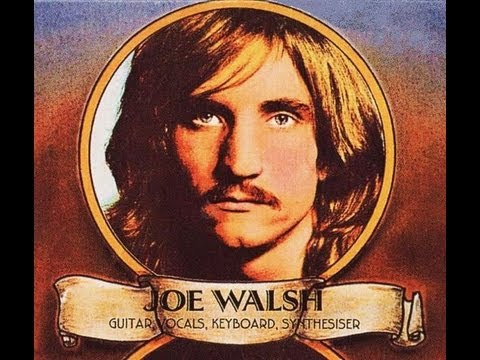 I met Walsh the following afternoon in Central Park and he was ecstatic, not about the gig, but the album he had just finished recording, James Gang Rides Again. “This album really reflects where we’re at right now as a band,” Walsh said in his laconic drawl as he sat on a grassy hill overlooking Sheep Meadow. “On the first album we didn’t really have any concepts or anything. We had songs that we did live. With the second album we have a little more direction. We know each other musically…. We’re gonna try to be the most versatile three piece group around. We’re gonna be able to do every song on both albums, and that’s hard for three people. We’re gonna add an organ so we can do the organ songs like ‘Tend My Garden’ and ‘Take a Look Around.’ More than most groups, the three of us have a really broad knowledge of rock… we’re into Buffalo Springfield and I’m really into The Beach Boys and The Beatles. All these things come out in our music more than just being a loud three piece electric band.”
I met Walsh the following afternoon in Central Park and he was ecstatic, not about the gig, but the album he had just finished recording, James Gang Rides Again. “This album really reflects where we’re at right now as a band,” Walsh said in his laconic drawl as he sat on a grassy hill overlooking Sheep Meadow. “On the first album we didn’t really have any concepts or anything. We had songs that we did live. With the second album we have a little more direction. We know each other musically…. We’re gonna try to be the most versatile three piece group around. We’re gonna be able to do every song on both albums, and that’s hard for three people. We’re gonna add an organ so we can do the organ songs like ‘Tend My Garden’ and ‘Take a Look Around.’ More than most groups, the three of us have a really broad knowledge of rock… we’re into Buffalo Springfield and I’m really into The Beach Boys and The Beatles. All these things come out in our music more than just being a loud three piece electric band.”
Watch a 2022 performance of the reunited James Gang
I pointed out that Cream was the standard against which groups like the James Gang were measured, which was true at the time, but Walsh had a quick retort. “A lot of people have said we reminded them of Cream,” Walsh noted. “We don’t remind me of Cream at all. We have the same instrumentation. Well, Traffic’s three guys. If we’re going anywhere it’s in that direction.”
When Rides Again hit the streets, Walsh’s remarks were easy to understand. It was a daring, almost schizophrenic record that essentially presented two groups, one on each side of the LP. Side one was the power trio, brilliantly produced by Bill Szymczyk, “made loud to be played loud” as the liners say. “Funk #49” took this syncopated monster riff to the next level, followed by the spacy “Asshton Park,” the riff rocker “Woman” and the side closing suite, “The Bomber,” incorporating Ravel’s “Bolero” and Vince Guaraldi’s “Cast Your Fate to the Wind.”
The songs on side one represented the group’s fundamental live sound at the time the record was released and were credited equally to the three members. Side two was all Joe Walsh except for “Ashes the Rain and I” which he co-wrote with bassist Dale Peters. “Tend My Garden,” indicative of Walsh’s fascination with the Beatles White Album, segues into “Garden Gate,” then comes “There I Go Again,” an Abbey Road inspired guitar overlay on “Thanks” and finally “Ashes…”
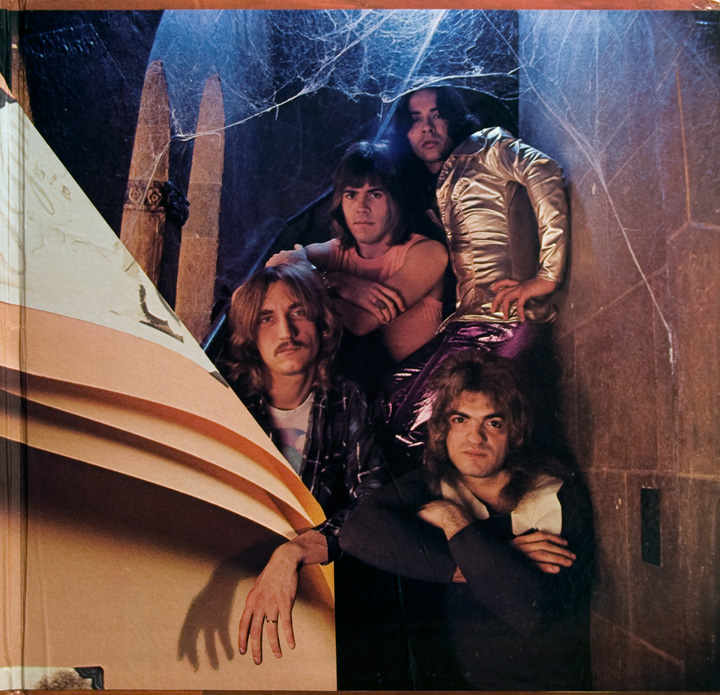 The contrast between the two sides was magnificent, making James Gang Rides Again one of the most influential records of the 1970s. It also defined a fault line between what would be the band’s calling card as a power trio and Walsh’s aspirations as a songwriter.
The contrast between the two sides was magnificent, making James Gang Rides Again one of the most influential records of the 1970s. It also defined a fault line between what would be the band’s calling card as a power trio and Walsh’s aspirations as a songwriter.
The very success of the James Gang started to irritate Walsh. “I can come off the stage having the worst night I ever had,” he said, “and if you jump around a lot and play loud you can fool the audience…. I really get off playing loud and hard and I really get off playing soft. I’m just really wary of playing soft because I’m afraid it won’t go over…. I think I’ll probably end up acoustic. I’ll play loud probably a year or two more and then get more into songwriting.”
Walsh would leave the band after making another studio album and the obligatory live recording. The featured song on each was the hit “Walk Away,” a sentiment that seemed to sum up the ambivalence in Walsh’s ability to rock out and his dismay in the results it produced.
Walsh, born November 20, 1947, was headed inexorably toward a collaboration with the Eagles, which seems inevitable in hindsight as his songs and recordings grew in sophistication.
Walsh left the James Gang in December of ’71 and holed up in the Colorado Rockies to make a solo record. He wanted time to reflect and came up with an astonishing sequence of songs to match a completely revamped sound on Barnstorm. This self-reflective and philosophic record shows Walsh evolving personally and artistically. Taking time out to consider his relationship to nature, family and his own aspirations, Walsh seemed to find peace in just being himself and pursuing his muse.
Walsh’s thoughtful perspective appears at the outset as he contemplates dawn in “Here We Go.” The new day offers the possibility for change, but also a return to the old mistakes.
From the understated opening guitar chords of “Here We Go” the record is a masterpiece, a direct extension of the mood on side two of Rides Again. Guitars, filtered through effects boxes and Leslie speakers, are used more for textures and fills than open-ended soloing as Walsh builds up layer after layer of phased sound in cascading rhythms. Guitars, organ, piano and ARP Odyssey synthesizer lines mesh with the sparse accompaniment of Kenny Passarelli on bass and Joe Vitale on percussion and flute. The moody, melodic result was just as Walsh predicted, a lot closer to Traffic than Cream. “Here We Go” built to a single guitar solo that lasted only a chorus before breaking into the piano intro to “Midnight Visitor,” an eerie song about a chance encounter in the wilderness based on The Hobbit, which Walsh was reading at the time. The clap along chorus featured Al Perkins on steel guitar.
Related: Walsh, Vitale and Passarelli recorded a new version of “Here We Go” in 2019
Reflections on starting over trigger heart-wrenching childhood memories on several Barnstorm songs. Joe’s father died when he was five years old, and he relives an emotional memory on “One and One.”
Related: Walsh and Barnstorm reunited for one night in 2017
His thoughts about the comforts of home life and the sadness of losing it come to the fore again on “Mother Says.”
Related: We spoke to Walsh about a topic near to his heart
I was living in a ground floor apartment at Broadway and 150th St., right across from Van Cortlandt Park in the Bronx. It was Thanksgiving weekend and my partner Barbara Mathe was in the next room when a package came hurtling through the hole we had cut in the front door to fit LP mailers. Sam the Cat was in his usual listening position on the left arm of the couch, perfectly situated between the two speakers, ears forward. I opened the package to find Barnstorm and immediately placed it on the turntable.
I’ll never forget the powerful emotions I felt on first hearing it, and I can never listen to it without revisiting that feeling. Walsh has written numerous first person songs over the years, but the emotional honesty matched with the beautiful orchestrations creates an intensely personal saga of suffering and loss redeemed by the simple perception and enjoyment of the world around you. On Barnstorm, Joe Walsh came face to face with what it means to be human.
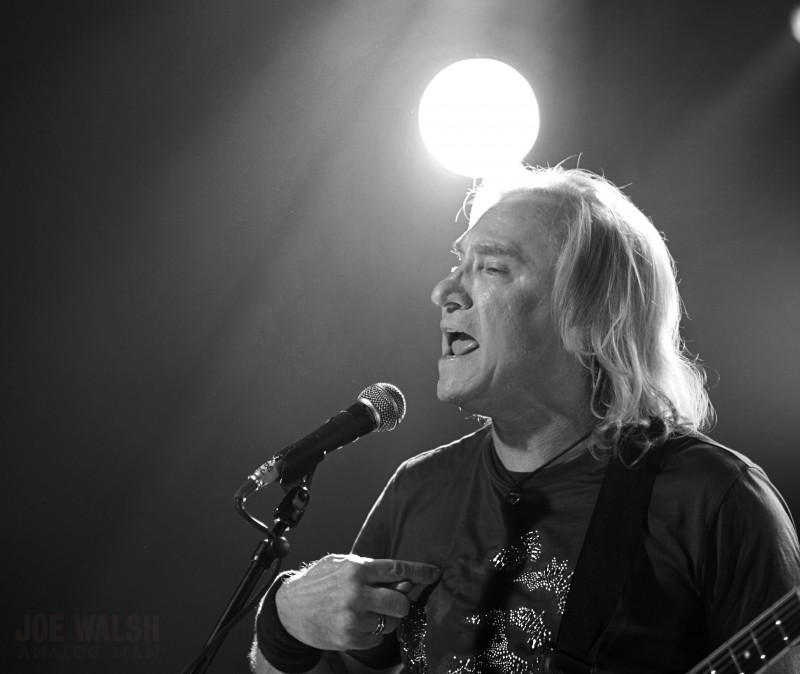 The experience must have done Walsh good because he returned immediately to the studio to make the more aggressive The Smoker You Drink, The Player You Get, with its signature song “Rocky Mountain Way.” For Walsh it was “time to open fire,” and he put together a great band to play the new material in concert. After a particularly fine show in Central Park not far from where he told me about Rides Again, Walsh knew his decision to move on from the James Gang had been vindicated.
The experience must have done Walsh good because he returned immediately to the studio to make the more aggressive The Smoker You Drink, The Player You Get, with its signature song “Rocky Mountain Way.” For Walsh it was “time to open fire,” and he put together a great band to play the new material in concert. After a particularly fine show in Central Park not far from where he told me about Rides Again, Walsh knew his decision to move on from the James Gang had been vindicated.
“I followed my convictions,” he said. “I’m kinda getting back into it. I totally withdrew…. I wanted not to be the guitar player but the songwriter, to get away from that young boogie audience. But I’m really starting to play on stage a lot better and I’m really starting to get back into some guitar work. You can’t cross the river without wanting to get back.”
Watch the 25 year-old Walsh perform “Rocky Mountain Way” on The Midnight Special in 1973
Walsh predicted that the next few Barnstorm records would be even better. But his new manager, Irving Azoff, had another idea. Azoff’s biggest client, Eagles, was looking for a new lead guitarist to replace Bernie Leadon. When Walsh went in to make his next album, So What, Eagles sang background vocals on “Help Me Thru the Night.”
Within the year Walsh was in the band and helping them make the Hotel California album. Eagles tickets are available here.


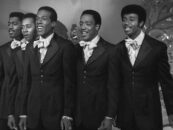

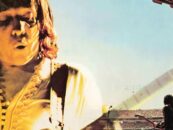

13 Comments so far
Jump into a conversationGreat article,makes it much clearer why I loved the Barnstorm album and the emotional connections I had with it..great writing!
More than emotional to me, his act was like a musical coming of age.
The James Gang albums still stand up today,
I never get tired of listening to them.
Barnstorm puts me in the same listening heaven mood.
Why does nobody ever mention “But Seriously, Folks” in assessments of Joe Walsh’s contributions? It always felt to me like one brilliant song after another, fitted together almost like an orchestral suite. For me it has been a touchstone too a particular time and place in my life. Musically, it’s a masterwork.
I agree Jeff…But Seriously is a perfect album from start to finish and played a big role in my youth as well!
Loved reading about Joe Walsh. Haven’t listened to Barnstorm, but will, now that this writing inspired me. Thanks
I enjoyed this article immensely. I’ve never really delved into Walsh’s records as his hits, for me, were a turnoff. I had always enjoyed the James Gang songs that I’d heard, but reasons I have no idea about, I never bought one of their records, or knew anyone who exposed me to them. I love these songs from “Barnstorm” that you’ve listed here, and I think a big reason for that is Walsh’s softer approach to his vocals in them. Personally, when Joe starts pushing his voice in his higher ranges, which is what he’s done on so many of his hits, I can’t take it. Though, somehow, it seemed to work OK in the James Gang’s hits. Still, his aspiration to create records a la “Traffic” were a revelation to me, and make me want to hear them. As an outsider to Walsh’s music, his hits and LP titles made him just appear as a jokester, who wasn’t really worth pursuing, or taking seriously. I’m glad to hear that there’s more to him than that, though I am confused as to why someone with the songwriting and creative aspirations that he put forth, would be willing to subjugate all that to become a sideman — even if it was with the Eagles. It seems like Walsh basically boxed up and sealed away his formally beloved creative aspirations to become primarily a guitar player again. And while being in the Eagles is only an occasional job, it seems that Walsh has put away his desires to be much else.
On of the 2 first albums had phantom tracks at the end of both sides as I recall. At the end of Side 1 was a voice saying to ‘Turn me over’, and at the end of Side 2 said ‘Play me again’, or something similar. I’d swear I’m right but we’re talking about memories from long ago so they may be distorted a bit.
Update; It was the YER ALBUM….:)
Only those with manual turntables got to experience those fun and unexpected ‘bonus’ tracks.
I was lucky enough to see Joe Walsh and the Eagles first performance even though were not a formal band yet. At a Elton John concert in Wembley Stadium in 1975, Joe Walsh and Barnstorm and the Eagles were both on the bill. Joe Walsh came on to play with the Eagles in their encore. They played “Get Back” in honor of Paul and Ringo who were in the stadium. Great rendition.
Are you sure about your old apartment location? Broadway and 150th would be in Harlem (Manhattan). If you were near Van Cortlandt Park in the Bronx it must have been closer to 250th. Maybe 251st St?
If you have never listened to “You Can’t Argue With A Sick Mind”, you need to do yourself a favor.
This is Joe Walsh live (1976), at his “pre-Eagles” zenith, with Felder, Frey, and Henley lending harmonies on “Help Me Thru The Night”, as a precursor to the next step in his career.
The entire LP is stellar (IMO), in terms of song selection, musicianship performance, recording sonics, backing/touring musicians, and extending improvisation on the studio versions.
“Rocky Mountain Way” is a barn-burner at over 7-1/2 minutes, as well as the classic “Turn To Stone”, (extended to close to 9 minutes), are primo live versions.
Played on a quality audio system, and cranked-up, it is a treat to the ears, and is well worth the price of admission, a million times over.
Support Live Music.